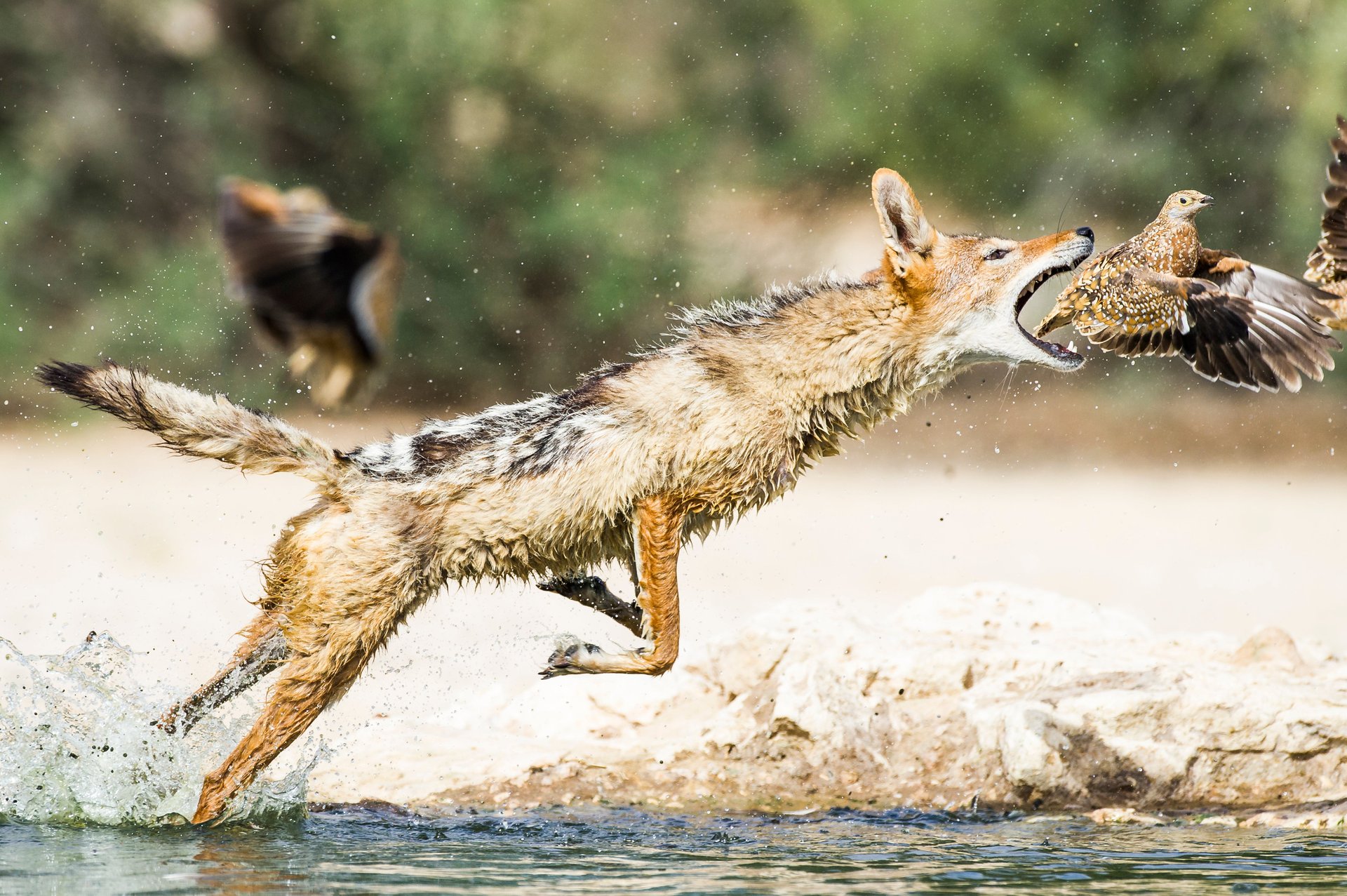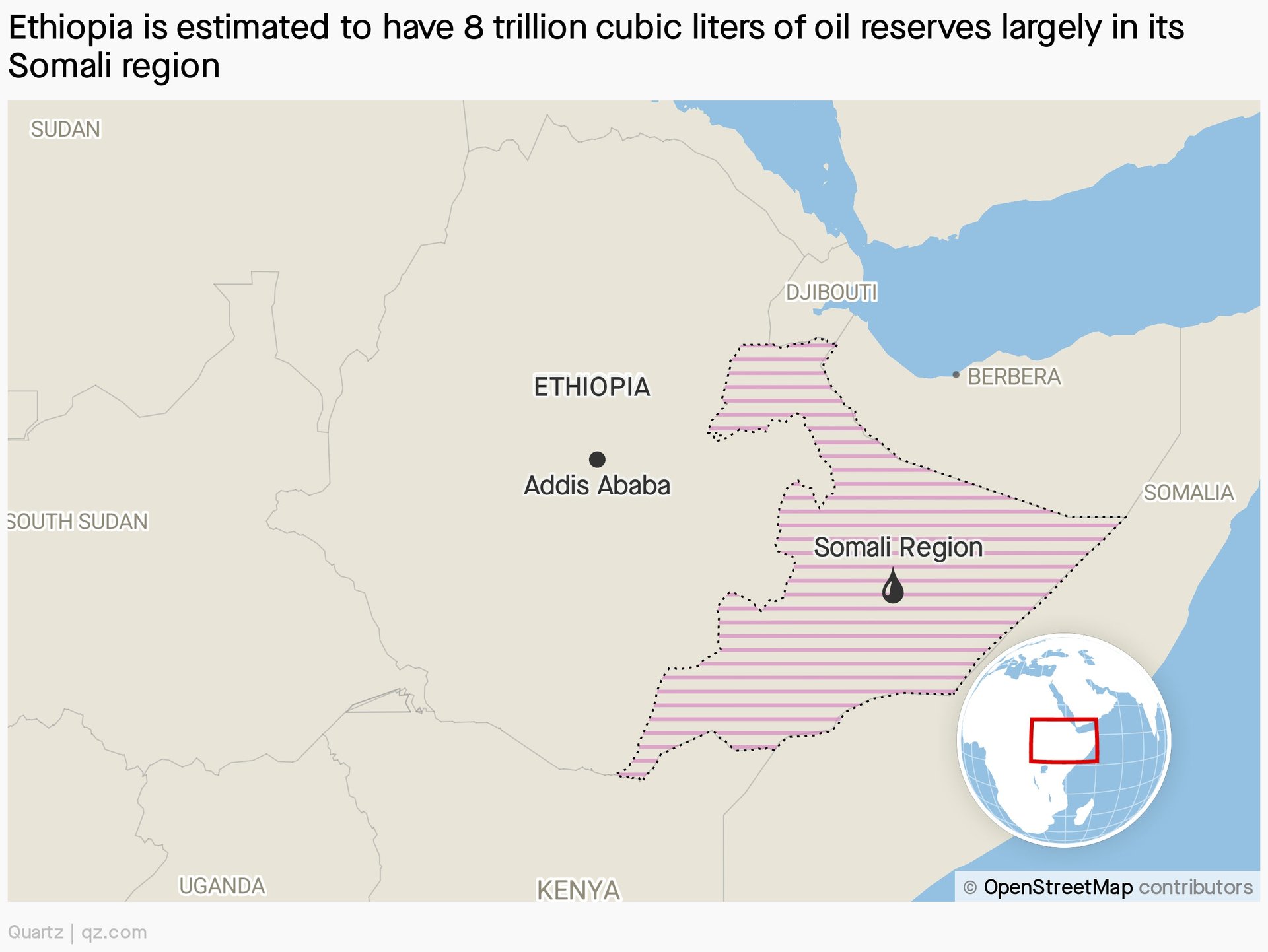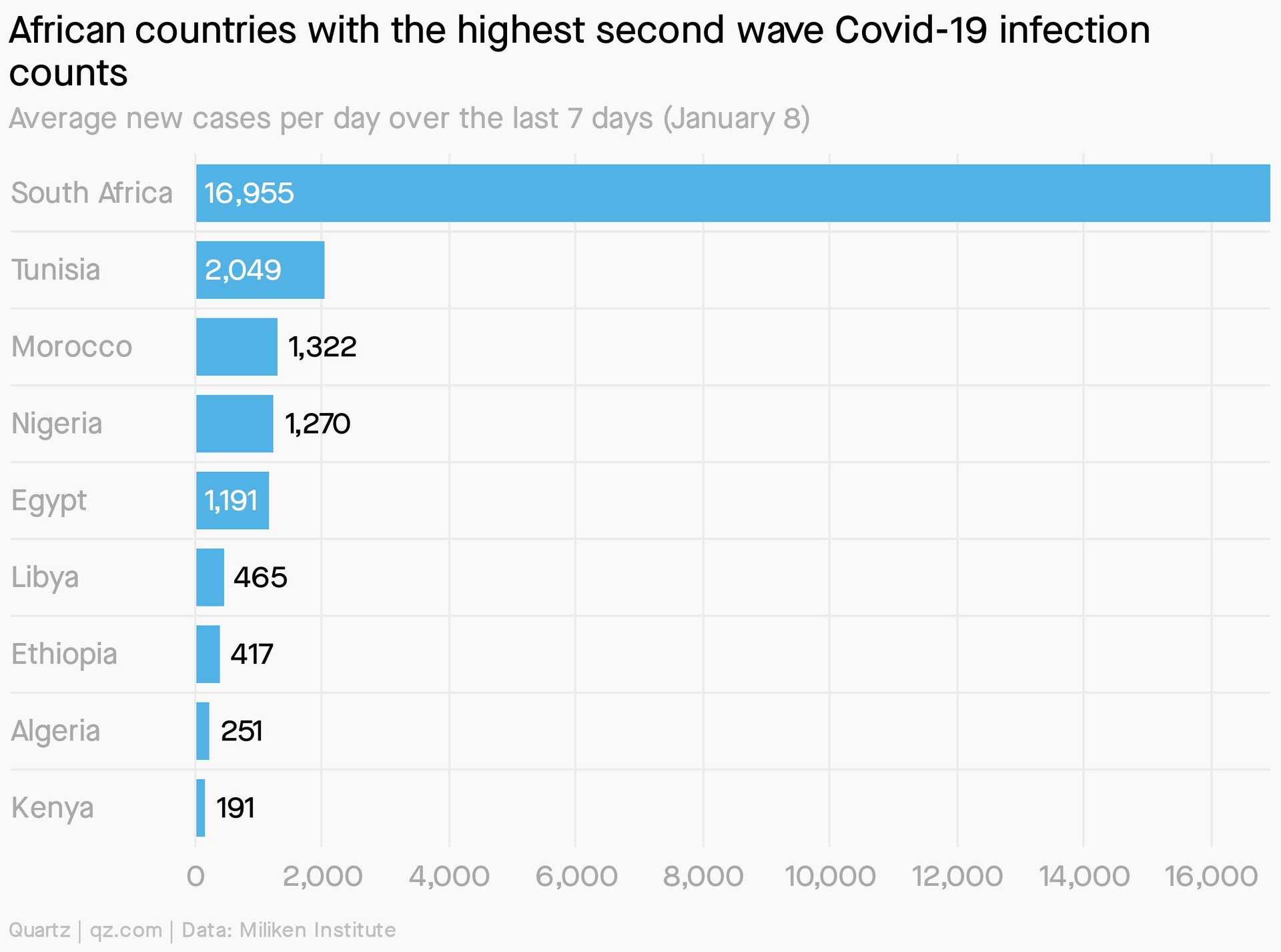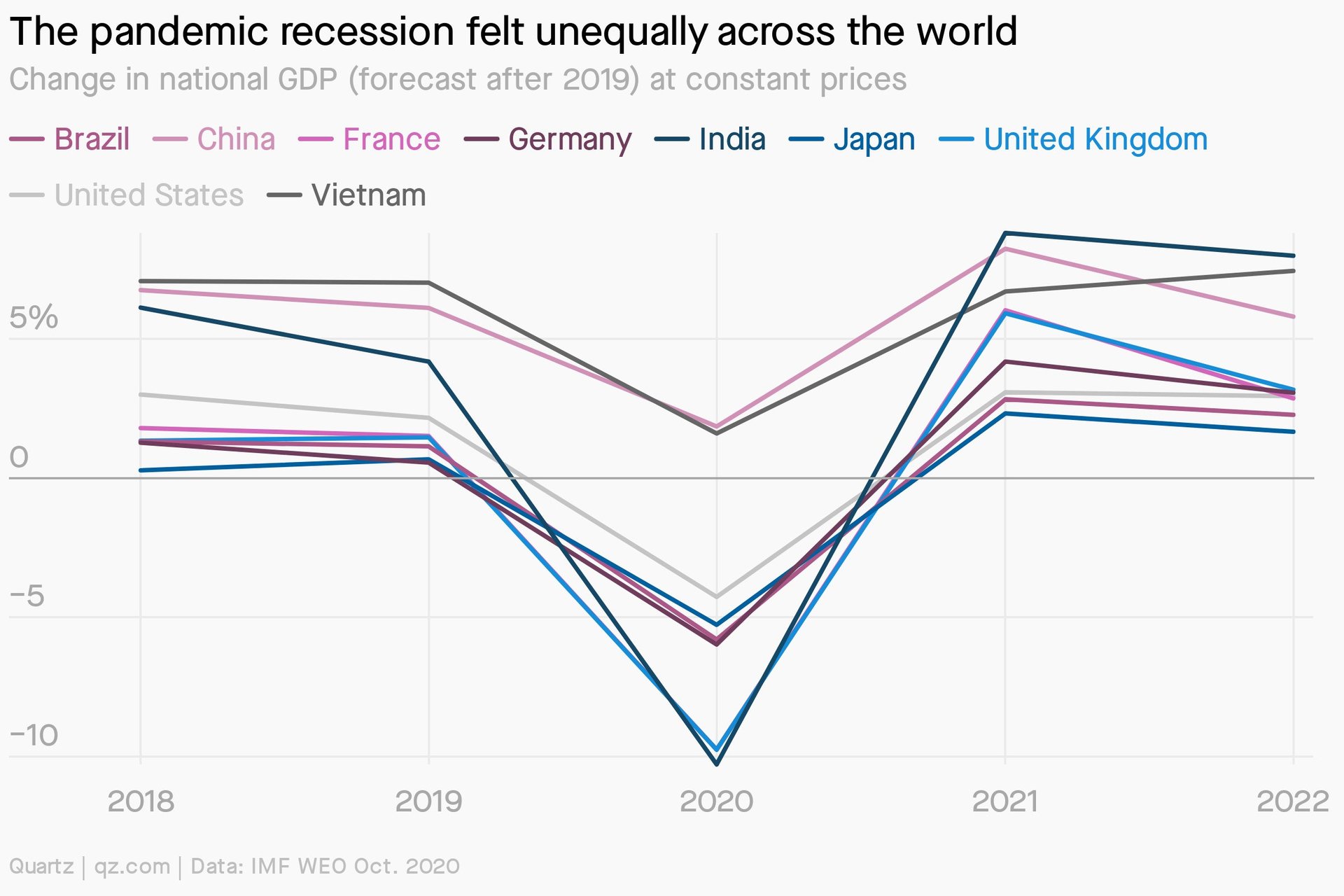Ethiopia’s oil scandal, AfCFTA, Wole Soyinka vs Uganda’s Museveni, Africa’s vaccine hunt
Happy New Year, Quartz Africa readers!


Happy New Year, Quartz Africa readers!
Free trade
Last December, Nigeria, ostensibly still Africa’s largest economy, said it would reopen its land borders Benin, Niger, and Cameroon on Dec. 31. The news would have come as a relief to the many business people, truckers, and traders who had spent months complaining about the border closure as it cost them millions of dollars in lost formal and informal trade.
The Nigerian government had shut the borders last year to crack down on people smuggling everything from bags of rice to arms. The government claimed smuggling threatened the country’s ambitions to boost local production and keep the country safe. It also argued the country was losing out on the ability to generate state revenues through import duties due to the smugglers.
But in theory, import duties from neighboring African countries became moot as soon as the next day because that was when the African Continental Free Trade Agreement kicked in. The long-expected AfCFTA is set to lower trade barriers between the majority of Africa’s 54 countries creating the globe’s largest trading bloc since the creation of the World Trade Organization. The $3.4 trillion market is widely expected to have positive transformative effects for intra-Africa trade, which is expected to rise by as much as 50%.
For the immediate future, most of the promise of AfCFTA is aspirational because in practical terms most of the true benefits will still take years if not decades to really kick in. But aspirations are a vital first step say long-time supporters.
“I believe that the impact of the AfCFTA has already started,” says Landry Signé, a fellow at Brookings Institution and policy advisor to African governments on implementing the agreement. He says some of the biggest changes haven’t been about policy. Rather, it’s been about a significant shift in approach to doing business on the continent.
But, as with president Buhari in Nigeria, it’ll be difficult for some African leaders to drop their decades-old habits or attitudes about their country’s borders. That will need to change. “If the experience of managing the pandemic on the continent has shown anything, it is that leaders must not only meet and talk more continuously but also that mentalities must be aligned and attuned,” says Cesar Augusto Mba Abogo, the former finance minister of Equatorial Guinea.
And it’s not only about lowering tariffs, there are plenty of non-tariff related levers and benefits as African countries trade closer together. At the top of the list is trade logistics. IMF research has shown improving the quality of trade logistics in Africa to the global average level would lower the costs of cross-border movement of goods and increase intra-African trade by 12%. Of coursel, most of that extra expense is due to higher transportation costs with poor road networks and other infrastructure deficits.
“Economies of scale and competitiveness gains associated with the [AfCFTA] reform could accelerate the process of industrialization in Africa and the diversification of its sources of growth, which could lift living standards closer to those in high income countries,” writes Hippolyte Fofack, chief economist, Afreximbank in a white paper.
— Yinka Adegoke, Quartz Africa editor
Ethiopia’s oil scandal
Ethiopia has long held an ambition to be able to become energy independent by extracting oil from its Somali region believed to hold up to 8 trillion cubic liters of reserves. This is why there was a very positive reception to its April 28, 2020 announcement for a $3.6 billion deal to build a refinery.

But within weeks of the deal announcement, reporter Zecharias Zelalem heard from a whistleblower at an Ethiopian government agency, worried about the deal. Thus began nearly five months of poring over government documents, corporate filing, and publicly available information on Virginia-based GreenComm. On Dec. 22, Quartz Africa published an investigative piece on our findings and just two weeks later Ethiopia’s petroleum minister confirmed the $3.6 billion deal would be rescinded.
Stories this week
Africa’s debt vs. Africa’s agency. Concerns continue to grow about how African finance ministers are going to manage a looming debt challenge as economies start to slowly emerge from the devastation of the global pandemic, but Hannah Ryder is also concerned about a fixed and outdated narrative on the topic. “The debt narrative tends to forget the “agency” of African governments and instead focuses on portraying others either as saviors or bogeymen.”
Wole Soyinka vs. Museveni. Nigerian Nobel laureate for literature, Wole Soyinka tells Quartz Africa he is “fed up” of Africa’s “sick old men” and sees Bobi Wine as the face of Ugandan democracy in his presidential bid against Yoweri Museveni who’s been in place for 34 years.
Photos: Africa’s parks vs. Covid. As Africa’s safari parks and game reserves struggle with a lack of visitors due to pandemic another issue on many minds is the struggle to maintain conservation efforts. Experts believe Covid-19 presents a unique opportunity to completely revamp the way the world approaches conservation in Africa.

Africa’s vaccine hunt. African countries are having to turn to Russia, India, and China to get hold of Covid vaccines despite skepticism that some of these have been put through robust trials, writes Uwagbale Edward-Ekpu. Outside of South Africa, most Sub Saharan Africa countries do not have a clear vaccine acquisition plan even as the second wave rages on.

Quartz gems: The world’s economy in 2021
The unique impact of the coronavirus recession makes a fast recovery possible. Other recent recessions have left behind financial systems crippled by toxic assets, or permanently broken industries that forced economy-wide restructuring. In contrast, while the suffering and dislocation of the pandemic have been staggering, societies have the tools to provide relief and a speedy recovery.

However, even when the Covid recession recedes, the global economy will still be facing the myriad of problems it did before 2020, from trade wars to inequality to weak investment. Our latest field guide provides a preview of what to expect for the global economy in 2021, including indicators to watch, and potential wildcard events.
Quartz Africa – Lagos, Cape Town
•Quartz Africa is looking for a full-time talented journalist in Lagos. If you’re a reporter who pays attention to detail, keen on tech/innovation and its impact on business/economy and Nigeria’s place in the world we want to hear from you. Email your CV/resumé and three published stories to [email protected] with subject: “Lagos reporter”.
•We’re also looking for part-time reporter to cover key stories on the tech, startup, and investment sector in Cape Town. Email your CV/resumé and three published stories to [email protected] with subject: “Cape Town reporter”.
Other things we liked
The sea that eats our children. In the 2010s the 2,400-km Mediterranean Sea became a mass graveyard to thousands of Africa, writes Nanjala Nyabola for The Elephant. But these deaths have wrongly been framed as an African crisis about migration while Europe has been quick to hijack the discussion and declare it a crisis of the European border. In fact it’s a crisis of the European state.
Lagos’ war on wheels. Lagos, Africa’s largest city, is a congested and difficult city to move around and in the last few years several motorcycle ride-hailing apps launched there with the aim of solving problem. But as Aanu Adeoye and Abubakar Idris report for Rest of World, the biggest obstacles isn’t traffic but government regulators.
Keep an eye on
Africa Unconstrained video series. Quartz Africa is supporting consultancy Development Reimagined in a new video series called Africa Unconstrained featuring interviews with key African policymakers around the biggest issues facing the continent’s economies in a post-Covid world. The first interviewee is ex-UNECA head professor Carlos Lopes. Watch here and sign up.
*This brief was produced while listening to Children Don’t Cry by Ebo Taylor Jnr. (Ghana)
Our best wishes for a productive and ideas-filled week ahead. Please send any news, comments, suggestions, and ideas to [email protected]. You can follow us on Twitter at @qzafrica for updates throughout the day.
If you received this email from a friend or colleague, you can sign up here to receive the Quartz Africa Weekly Brief in your inbox every week. You can also follow Quartz Africa on Facebook.